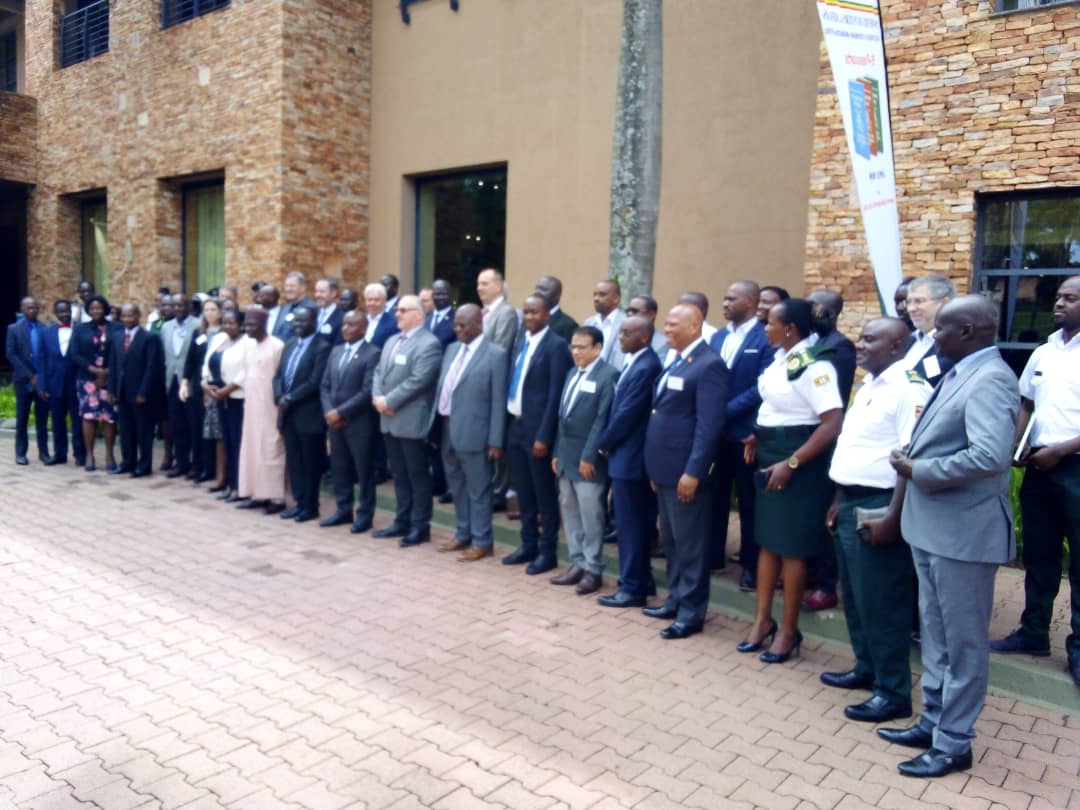advertisement
Civil Aviation Organizations Deliberate On Use Of Machine Readable E-Passports

Members from the International Civil Aviation Organization (ICAO) are in Uganda to deliberate on the use of machine-readable travel documents, public key infrastructure, and the use of public key directory technology.
In his opening remarks at the meeting on Wednesday 16th Nov, the permanent secretary Ministry of Internal Affairs Lt. Gen Joseph Musanyufu, highlighted that Uganda has embraced the new electronic passport management system and the country is looking forward to adopting new technologies.
The ongoing Conference being held at Speke Resort Hotel, Munyonyo, in Kampala, brought in delegates from over 88 countries, to attend the second international Civil Aviation Authority high-level meeting on the verification of travel documents.
Uganda, as part of the international community, is a signatory to the International Civil Aviation Authority organization
The meeting, composed of regulators from member states, is discussing the verification of electronic machine-readable travel documents, public key infrastructure, and the use of the ICAO public key directory. The travel documents are mainly composed of passports and National Identity cards.
Lt Gen. Musanyafu, added that Uganda plans to improve the e- passport by adopting the polycarbonate bio-data page to match the standard recommended and agreed on by east African Community (EAC) member states.
“Uganda started implementing the e-passports in 2018 after most East African states started migrating from ordinary machine-readable passports to the electronic passport machine-readable travel documents”, said Musanyufu.
The Chairperson, ICAO, Mario Wiesen from Luxembourg, said e-passports are hard to forge by fraudsters, given the different security features such as the chips built into the data system.
Mario commended Uganda for offering to host the ICAO PKD conference on the verification of electronic machines readable travel documents, public key infrastructure, and the use of the ICAO public key directorate (PKD).
According to Mario, the workshop will enable ICAO member states to learn more and understand how the public key directory PKD works.
“With the e-passport personalized, citizens leaving or entering the country can freely do so without necessarily interacting with immigration officers using e-gates. The government of Uganda will soon be installing automated e-gates at Entebbe Airport”, he said.
Mundeyi Simon Peter, the spokesperson at the Ministry of Internal affairs, while addressing Journalists at the conference, said the e-passport will tremendously enhance the integrity of the Ugandan passport worldwide, across embassies and airlines.
“Airline check-in, as well as immigration Border and Airport controls, will be less intensive, and when we install e-gates as has been planned for in Entebbe International Airport, Ugandans returning home will go through the exciting feeling of entering their country on their own”, Mundeyi said.
He added that the e-passport is designed to enhance secure travel for the traveler, the Airline, and Immigration and Border security agencies because it is extremely difficult to change data, and is held on the e-passport, making it almost impossible for forgery to take place.
The heads of State of the EAC decided for all member states to shift from our Machine-Readable Passports (MRP) to one EAC e-passport for all the member countries.
The EAC Council of Ministers at its 35th sitting directed member States to commence issuance of the new EAC e-passport by January 31, 2018, based on the status of preparedness by different member states.